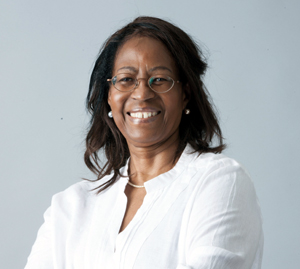I had coffee with a friend a couple of weeks ago. Things haven’t been going well for me for a while and this came out as we were catching up. Usually, when someone asks, “How are you doing?” I plaster a smile on my face and say, “Fine.” That’s usually the end of it and since most people love to talk about themselves, I steer the conversation back to them. But this guy insisted on knowing how things were, so I told him.
The surprise came when he wouldn’t let me label the stuff I had tried that hadn’t worked out as “failures.” He insisted that these were little bumps on the road to the smashing success that I will achieve. I’m sure he was trying to make me feel better. But his adamant insistence only made me feel worse and regret getting into the conversation in the first place.
Positivity warriors can be very irritating. Tossing out statements like “Winners never quit and quitters never win” rarely motivates the recipient. In fact, they end up diminishing other people’s feelings, to have their struggles dismissed so casually. It’s the reason I don’t read motivational books. Most are filled with cheap theatrics and prescriptions that don’t actually work in real life. They only benefit the author (through book sales) and make many readers wonder what is wrong with them that the author’s advice does not translate into similar success in their own lives.
The bible thumping brigade is just as bad. “God has a plan for your life and it’s wonderful.” I know God has a plan you nitwit. But right now – in this very second, minute or hour – that plan sucks. I feel like crap and want to wallow, even if it’s only for a short time. To acknowledge and recognise the pain that comes from knowing that you put your heart and soul into something and it didn’t work out the way you planned.
This dogged refusal to accept failure is why so many people are depressed. The only social media platform I’m on is Twitter. I can only imagine what someone whose life isn’t working out feels when they log into Facebook, Instagram and the like to see a daily display of people living ‘perfect lives’, going on fabulous holidays and spending money like water. Smiles in every photo, not a frown in sight. Of course it’s an act. Nobody’s life is good all the time. Plenty of those people are probably going through unimaginable horrors but you wouldn’t know that from their social media posts.
The popular mantra, ‘Fake it until you make it’, is killing many people slowly. People who look around them and wonder why they seem to be the only ones struggling.
Even the few who do admit to failing at something, often it’s a soundbite acting as an entry point to a tale about the fabulous success they subsequently achieved. Entrepreneurs in particular do this a lot.
And so you spend more time and energy, keep pouring money into something that’s clearly not working, chasing the elusive pot of gold at the end of the rainbow. When you are better off taking a hard look at what you’ve already put in and doing a brutally honest assessment of what you are producing or the service you are offering. Does the world really need it? If the answer is yes, can you sell it at a price point where buyers feel it’s affordable and you can recoup your costs? If not, isn’t it better to QUIT and do something else?
Quitting has become a dirty word, to the extent that we are shaming people at the end of their rope to keep going and do things that are not working, just to avoid being labelled a quitter. Below are three entrepreneurs who had the courage to admit that they failed at something. I applaud them for acknowledging that failure is part and parcel of life.
Myke Rabar, founder, Homeboyz Entertainment Limited
Myke decided to diversify in 2005 by opening a shop in Nakumatt Prestige on Ngong Road called The Boxx to sell music. The concept was simple. Buy CDs at Ksh700 and sell them at Ksh1,200. At this price, there were few takers.
“There’s no culture of buying music in this country and pirated copies were of course much cheaper. The FM stations also played music around the clock making people feel it is unnecessary to buy music,” says Myke. Pilferage was another challenge. When opening The Boxx, Homeboyz also expected that contemporary music like R&B and hip hop, would sell more but gospel music was the fastest moving. They had few gospel titles and were not ready to invest in this type of music.

The stock was not moving fast enough and yet they had to keep on buying new titles because the shop also had to cater for people who wanted the latest music. Because of this they ended up with a lot of money tied up in dead stock, which led to cash flow problems. “Some people would come and request the latest album by an artist but when we brought it they would say they didn’t want it anymore, probably because they had got it free from the Internet or dubbed from a friend,” says Myke.
They had negotiated for six months before gaining entry into Nakumatt (at the time Kenya’s largest retail chain), which had a model stipulating that all its branches must be similar, meaning a supplier had to supply to all branches. In their case, Nakumatt expected them to roll out The Boxx across all its branches, an investment beyond their means. But the chain’s management was understanding and gave them a grace period to do it. Nakumatt did not own any of the stock and only charged rent for the space and took a commission on sales.
For quality purposes and uniformity, they had to use the chain’s contractors when building their shop, which was quite expensive. Setting up their shop cost Ksh4 million, which did not include the cost of buying stock.
“We had a good idea but we were not ready for it. It made sense to partner with such a large retail outlet because one of my long term plans was to set up a record label and I knew the one thing that kills music sales in this market is poor distribution. We competed with a foreign owned music store to get into Nakumatt and they decided to give it to a local business. I was worried that if we pulled out we’d never get another chance,” says Myke.
The hardest bit was knowing when to stop and accept that things were not working because he was so passionate about the business. They were bleeding cash and only a trickle was coming back in form of sales.
“I’m the one who steers most of the financing and I could see that we already owed too much but we had fought so hard to get into Nakumatt that we just kept pushing and hoping things would change,” says Myke. In the end, they had no choice. They made such huge losses that the venture almost shut down Homeboys including their flagship deejaying outfit.
This experience taught Myke that while thinking far ahead is good, it can kill a business in the short term due to the logistics of implementation. The devil is always in the details and implementation has to be given a lot of thought before diving into a new venture.
Evelyn Mungai-Eldon, founder, Evelyn College of Design
Evelyn ventured into publishing in the early 1980s with Presence magazine targeted at middle class women. At the time, her college was chugging along smoothly; she was restless and looking for a new challenge. “I wanted to reach out to women and thought the way to do that was to have a voice through a publication. I also thought it would be a good way to expose the designs we were doing at the college,” she says.

Evelyn also loved reading and writing and reaching out to people through Presence magazine, describing it as one of the best times of her life. Although she was in publishing for ten years, she says there was no money in it and they were permanently hustling for advertising. “If anything, it took away a lot of my money. I see people going into publishing thinking there is money but there isn’t, not in this country anyway. You may have the best content and everybody buying a copy but you still don’t generate enough advertising to keep you afloat. That’s why a lot of publications go down,” she says.
It was while publishing Presence that Evelyn made the biggest mistake of her working life. “I used to give my publication to the printers and then realised the bill was very high and got myself involved in a printing press. It was a nightmare and the worst mistake I ever made,” she says. “I borrowed money to buy it but knew nothing about printing presses and before long people were telling me there was no ink, no film, no plate and I just ended up pouring more money into it. Little did I know that the best thing was to outsource. I lost millions of shillings,” she says.
This costly mistake taught her an important lesson; that you don’t have to do everything yourself and sometimes it’s best to outsource. Despite the fact that she enjoyed publishing Presence, Evelyn says in every business you have to be practical and realistic and weigh the direction it is going.
“If it’s not bringing the income it’s supposed to bring and it’s bringing more headaches than joy, just walk away and do something else. We’re talking about entrepreneurial spirit here and even if doing something is fun, how long can you lose money in the process?”
Nevertheless, it was a hard decision to make especially letting go of loyal staff although some were absorbed into the college.
Manu Chandaria, Chairman, Comcraft Group
Kenya’s most successful entrepreneur has also made his share of mistakes, including one that almost resulted in the group losing one of their companies.

Manu says his worst failure was allowing the Tanzanian government to take over the management of Aluminum Africa (ALAF) in 1988. A botched succession at the company triggered the takeover by the government, which had taken a 60% stake in 1973. “We took our position in Tanzania for granted because we had been there since 1960 and our relations with the government had remained good,” says Manu.
In the decade it took to get back control of the company, mismanagement had resulted in an accumulated loss of $20 million not to mention the loss of its reputation. It took the group another 8 years to wipe out the losses and bring ALAF back to profitability. That mistake cost the company 15 years of growth. Time that it will never get back. Time in which the company could have grown to twice its size. The lesson Manu took away from this experience was that irrespective of who makes a mistake, time wasted is gone and can never be recovered.
~~~~~~
To read more about the business ventures these entrepreneurs did get right, purchase a copy of A Profile of Kenyan Entrepreneurs authored by Wanjiru Waithaka & Evans Majeni.


